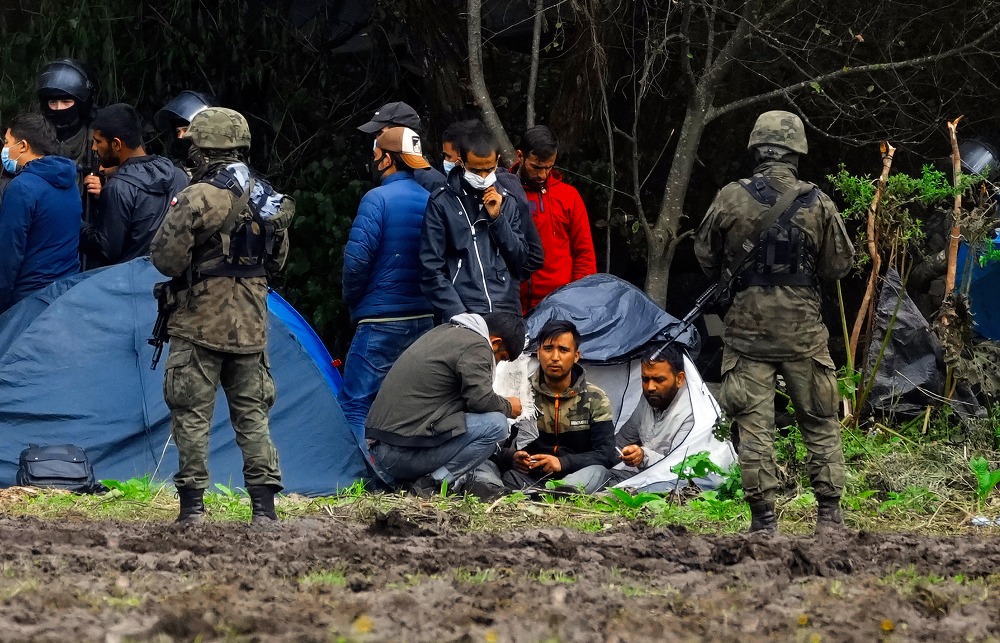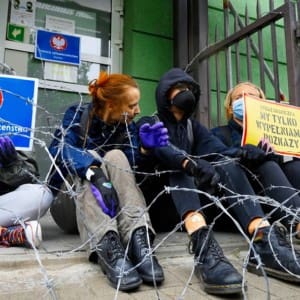On Thursday, Polish MPs voted on President Andrzej Duda’s motion to permit the extension of the state of emergency in the region surrounding the Polish-Belarusian border by 60 days. The vote was preceded by a parliamentary debate and a speech by Interior Minister Mariusz Kamiński. After the deliberations, parliament voted in favor of extending the state of emergency.
In his speech, Minister Kamiński pointed out that opposition politicians mix up the terms “migrant” and “refugee.”
“It must be said clearly — what we are dealing with on the Polish-Belarusian border is a wave of mass, illegal migration organized by the Belarusian state,” he underlined. Kamiński said that the migration crisis was a way for Alexander Lukashenko to get revenge on Poland for supporting democratic movements in Belarus.
The minister said that Poland had accepted 15,000 Belarusian refugees as a result of the political crisis and persecution of the opposition in Belarus. Kamiński emphasized that these people were threatened with political repressions by the Belarusian regime due to their views and values.
He noted that the government can differentiate between migrants and refugees.

“Meanwhile, the people who are currently reaching our border are people who found themselves in Belarus entirely legally. They are people who have visas and have paid huge sums for Middle-Eastern standards, as they usually come from that region,” he said, adding that these people were migrants who were trying to improve their life situations.
The minister explained how these migrants are attempting to illegally cross the border.
They are split up into groups by Belarusian Border Guard officers in an organized way. They are then led to the Polish border. Belarusian drones observe the border to see where there are currently no Polish patrols. Multiple groups of migrants then run across the border. Prior to this, crossings, ladders, planks and shears to cut wire are prepared for them.
In terms of security, Minister Kamiński informed that there were 4,000 Border Guard officers supported by 2,500 soldiers and a few hundred police officers. He stated that 95 percent of people who try to illegally cross the border are stopped.
Since the beginning of 2021, there have been 11,500 attempts to illegally cross the border: 10,000 were stopped on the border itself, while 1,500 were detained within the country and transported to guarded centers for refugees.





